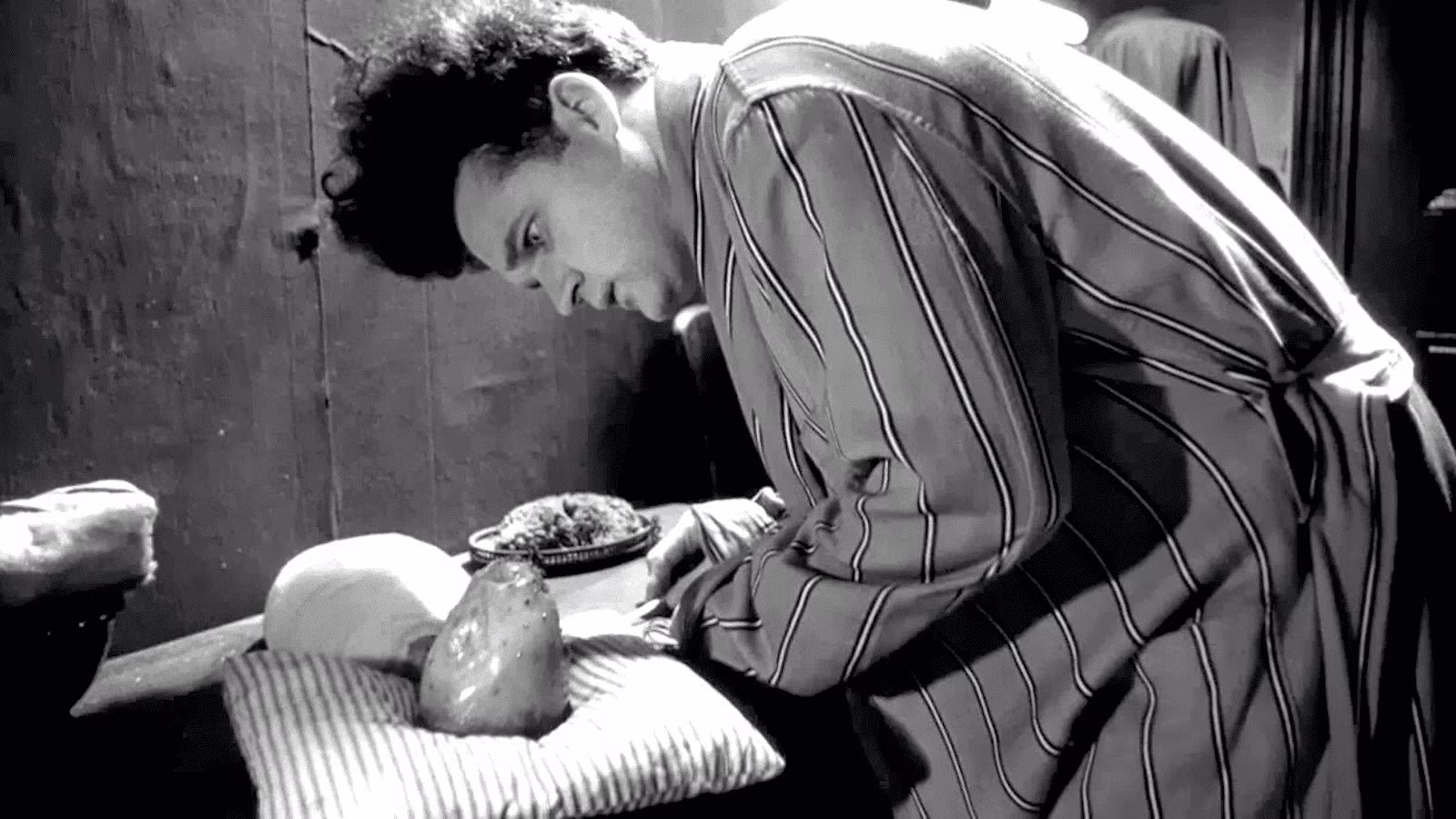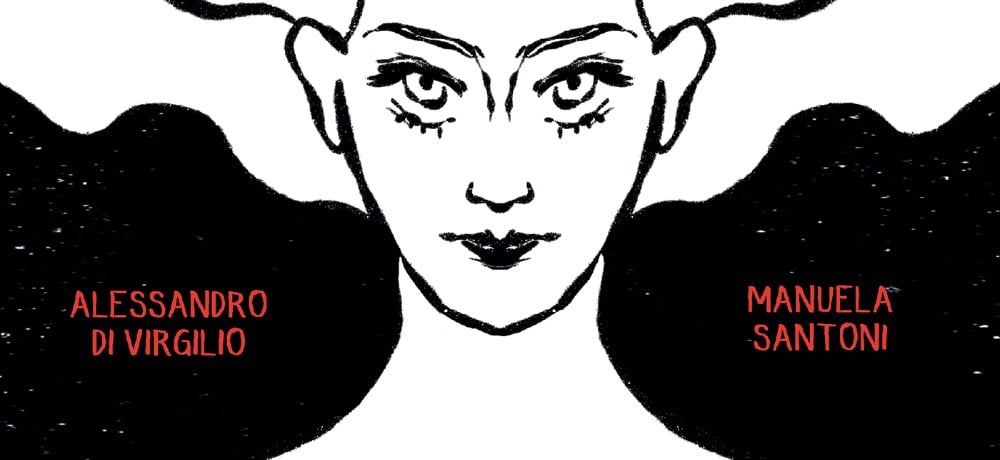‘Dune: Part Two’ is a Stunning Masterpiece [Review]
![‘Dune: Part Two’ is a Stunning Masterpiece [Review] ‘Dune: Part Two’ is a Stunning Masterpiece [Review]](https://wickedhorror.com/wp-content/uploads/2024/02/rev-1-DUN2-T3-0084r_High_Res_JPEG-scaled-e1709090681134.jpeg)
What if I told you that a space opera about politics, ecology and spice would be a defining cinematic masterpiece of the 21st century? Dune: Part Two doesn’t need a formal introduction, of course, the hype train for this movie has left the station in the form of a giant sandworm, and with the Muad ‘dib on its back, will overwhelm audiences around the world with its sheer enormity. First and foremost, Dune: Part Two is loud. Maybe the loudest movie of all time. Second, Dune: Part Two is by far the most visually stunning spectacle that I have ever seen. The Dolby theater that I got to experience Dune: Part Two in had to be gasping for air by the time the credits rolled at the end of the movie. I’ve seen a lot of movies in my life, and I genuinely do not understand how people can tell a story on film in such spectacular fashion. It honestly stresses me out to think about how much meticulous work goes into making such a phenomenal movie on this scale. Seems impossible. So let’s talk about it…
Let’s start with Denis Villeneuve, because quite frankly, I do not believe there is anyone operating on his level right now in regard to filmmaking prowess. That might sound hyperbolic, considering how many great filmmakers are still working, but I don’t think anyone else can do what he does, and that is the rarest of rare attributes one can have. For those who aren’t familiar, Denis Villeneuve is the director and co-screenwriter of Dune: Part Two, as well as its predecessor, Dune (2021). As a matter of fact, the entire filmmaking team returns for Dune: Part Two, cast and crew alike, but more on that later…
Villeneuve is on one of the hottest hot streaks in regard to pumping out classics maybe ever. It seems pretty clear now that he just can’t miss. Going back to 2013, and we’re just going to leave his native French language early films prior to 2013 out of this, but I can’t recommend those enough as well, Villeneuve has casually gone on a historical run of Prisoners, Enemy, Sicario (F**k Yeah), Arrival, Blade Runner 2049 (Double F**k Yeah) and Dune (2021). Now crescendoing with Dune: Part Two puts an exclamation point on maybe (I know, I’m throwing around a lot of maybes while also throwing around grand proclamations as well, bear with me please) the greatest ten-year run-in filmmaking history? I’ll leave it up to you to decide that for sure, but dollars to donuts you won’t be able to find a ten-year consecutive run with that amount of volume as well as quality. Truly remarkable….
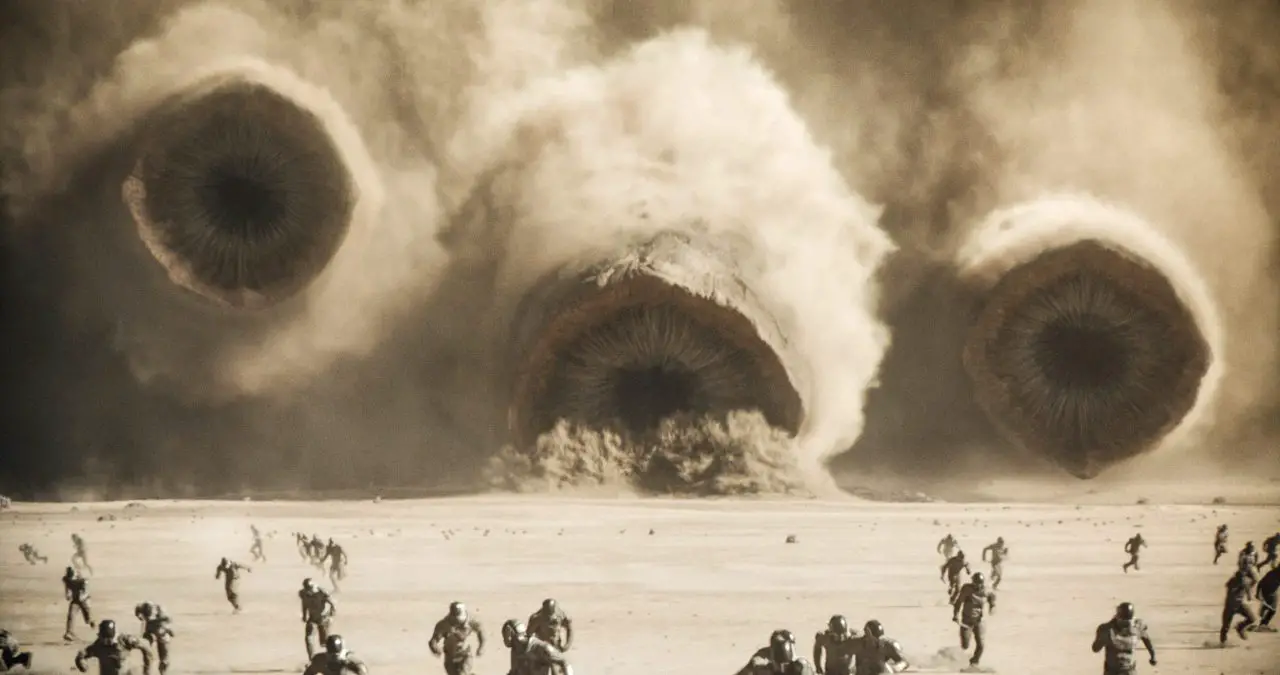

Villeneuve’s greatest strength, and it’s pretty obvious, is his visual feel for storytelling. It’s hard to specifically describe it, but scene-to-scene the visuals are not only unlike anything else, but also way cooler than anything and everything else. Give the man a camera, a donkey and an empty room and he could probably make a cooler movie than anything Marvel is putting out right now. Villeneuve’s feel for filmmaking isn’t just strictly visual, he clearly understands sound, and how to tell a story on the biggest scale imaginable. It’s not like Villeneuve is a solo auteur, as there are plenty of other contributors on his filmmaking team who can play at his level, but the consistent quality of Villeneuve films, even if they do not all perform at the box office, are nothing short of outstanding. All of this can clearly be directly attributed to Villeneuve’s ability to perfectly execute on how he imagines something to look and sound, which then translates beautifully to the big screen…
Like I had mentioned above, the entire cast and crew returns for Dune: Part Two, as it is a direct continuation of Dune (2021), this time with a few additions, but more on that later. Dune (2021) and Dune: Part Two are adapted from Frank Herbert’s long running series of science fiction novels, titled of course, Dune. I’ve read Dune, and not to brag but I’ve listened to the audiobook of its sequel, Dune Messiah. I loved both books, there is so much depth and spectacle to them. Frank Herbert’s Dune has an incredible cult following. One of the most faithful fans of the novel is not only Villeneuve himself, but also the legendary composer Hans Zimmer as well, who handles the score for Dune (2021) and Dune: Part Two. I believe it is pretty obvious, but since the source material is handled directly by two creatives who treat this project like a career-defining passion project is a pretty damn good reason as to why this adaptation works exponentially more so than the David Lynch iteration of Dune (1984). I guess now is a good time to briefly mention the Lynch film. Lynch is another cinema master, so I mean no disrespect, as there were clearly other factors involved as to why that movie didn’t work, but this recent adaptation blows Lynch’s Dune adaptation so far out of the water that it doesn’t even seem possible they come from the same source material. We have better technology in the 21st century, especially in the 2020s, but holy moly. It’s actually not even worth mentioning the 1984 adaptation anymore. It’s like the difference between Steven Spielberg’s War of the Worlds compared to Orson Welles’ 1938 radio play version of the same material, just totally different stratospheres. Again, I mean no disrespect. I didn’t hate Dune (1984). But let’s move on…
Dune is the story of Paul Atreides, played by Timothee Chalamet, who is a young Duke caught up in a longstanding feud between powerful families that rule all of the known worlds. Paul has to navigate prophecies and political warfare, while also learning combat as a young boy and becoming a man on the battlefield, as well as coming to terms with being the messiah who can bring change to the world, potentially of course. Paul Atreides is the Luke Skywalker of Dune, to put it simply to those who are unfamiliar. The only difference being Paul has no confusion about who he is and where he comes from, in Dune, being an heir to one of the most powerful families in the known world.
Dune is too sprawling to even translate into a cliff notes version, so I’ll keep it very simple. The Atreides family has become too powerful for their own good, and the ruler of the known world, Emperor Shaddam, played by Christopher Walken, has become fearful of the Atreides family’s potential power. Fearing this, the Emperor has to knock the Atreides down a peg, and uses the brutally vicious Harkonnen family, led by Baron Harkonnen, played by Stellan Skarsgard, to essentially do his dirty work for him. The Atreides family and the Harkonnen family have been at odds for centuries, so it didn’t take much, but with the Emperor giving the Atreides family the profitable planet Arrakis, rich with spice, previously belonging to the Harkonnens. Emperor Shaddam essentially, and full knowingly, ignited a war between the two great houses, with the hopes of both the Atreides, as well as the Harkonnens, destroying each other to the point where the Emperor is the undisputed most powerful ruler of the known world. Paul’s place in this war comes from tragedy, with the Baron Harkonnen killing his father, Leto Atreides, and demolishing the rest of House Atreides. It is up to Paul to not only carry on the family namesake, but also to lead the Arrakis natives, known as the Fremen, to freedom and paradise…
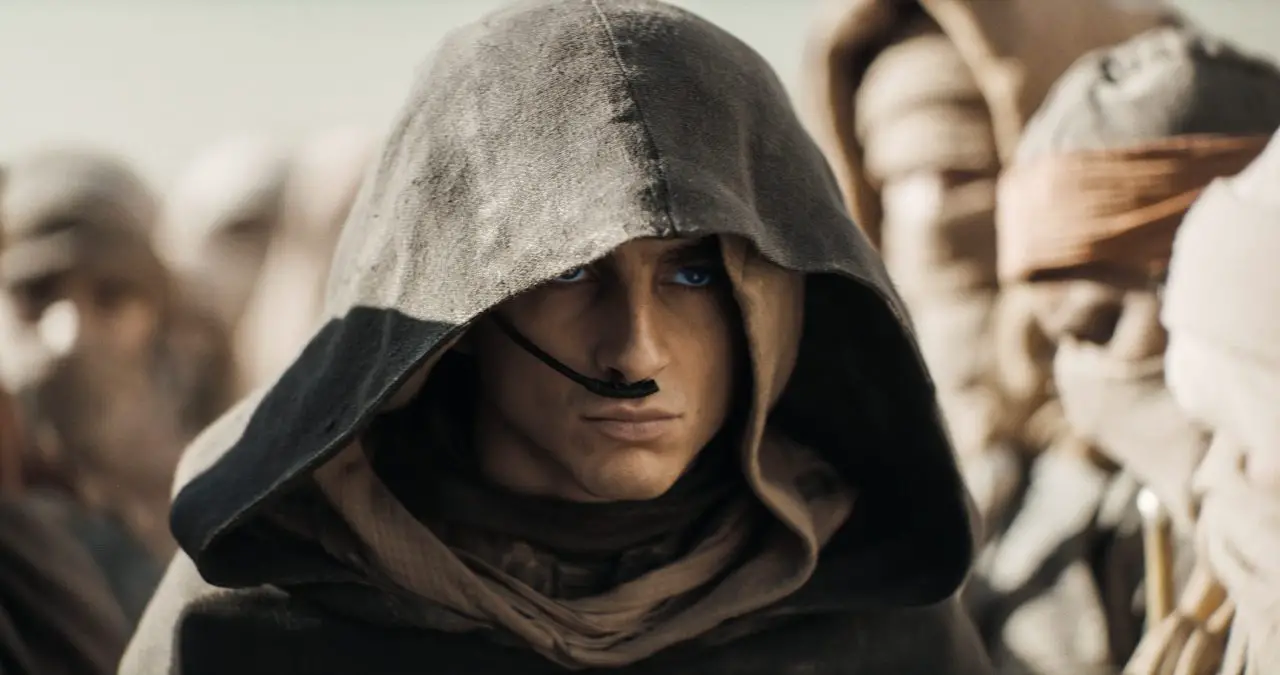
After the Harkonnens seemingly eradicate all of House Atreides in the previous Dune (2021), Paul and his mother flee into Fremen territory on the desert planet. The Fremen are one with the desert, strong fighters, fiercely loyal to each other and best of all, can harness the power of the Sandworms. Yes, those Sandworms, of movie theater popcorn bucket fame. In all seriousness, these sandworms are absolutely spectacular, and blew me away completely every time they dominated the screen. Paul and his mother become part of the Fremen tribe, and after a series of trials, those Fremen who believe in prophecies quickly start to believe that Paul is the chosen one, and they become loyal to Paul. Paul is forced to grapple with what comes with that responsibility, all while high as a kite on desert spice. All in all, there is so much more to this epic story, but as an attempted brief description goes, that will do…
Let’s move onto the giant fricken movie stars in Dune: Part Two. Like I had mentioned previously, Dune: Part Two is a Timothee Chalamet-starring vehicle, and in my opinion, he is now solidified as an adult movie star. Not that kind of adult movie star, I just mean he is officially no longer a teen heartthrob, he is now an adult male movie star of legal age acting in movies. Chalamet is a major box office draw, and incredibly talented as an actor, but most importantly, he has movie star presence. Movie star presence can’t be taught or learned. It can’t be forced on the audience. Movie star presence is something you just know when you see it. And Chalamet has that presence as an adult film actor now. Much like Depp in the late eighties and DiCaprio in the mid-to-late nineties, Chalamet had that boyish quality that took some time to shake off. There are plenty of examples of great young performers who never could excel in more adult roles after previously excelling in young adult/boy roles. But just like DiCaprio and Depp, Chalamet seems to have fully transitioned into an adult movie star from teen heartthrob. Chalamet brings an intensity but also a sweet humility that is typically hard to pull off. Look how bland Kyle Maclachlan’s performance is in the original Dune (1984) adaptation (again, no disrespect, I love Kyle Maclachlan). This also might sound sacrilegious to some, but also look at how wooden Mark Hamill is as Luke Skywalker. Even Keanu Reeves as Neo in The Matrix wasn’t exactly the most thrilling character performance, to be polite. These ‘chosen one’ roles are difficult to pull off, and require a seriously specific combination of likable and complicated, tough and kind, simply just believable as a messiah, as ridiculous as that sounds, which in my opinion, Chalamet pulls off…
The entire cast consists of acting legends, seasoned veterans like Christopher Walken, Stellan Skarsgard, Josh Brolin, Charlotte Rampling, and Javier Bardem are as good as always, while the exciting and young next crop of Hollywood royalty like Zendaya, Austin Butler, Florence Pugh, Rebecca Ferguson, Lea Seydoux, and Dave Bautista round out the cast and deliver unique and entertaining performances across the board. It’s hard to pinpoint a specific performance from the entire cast as everyone is perfect for their respective roles, but it would be malpractice to not mention Austin Butler’s turn as Feyd-Rautha. Butler brings so much eccentricity to the role and makes it impossible to avert your eyes, consistently blowing everyone else off of the screen. Yeah, he is annoyingly handsome, but he is also a pretty damn good actor already. Last but certainly not least, Zendaya’s character, Chani, is a crucial central figure to this story and her performance is vital to the likeability of the movie. The Dune story is of course centered around Paul, not Chani, but Zendaya’s energy, star power and acting talent gives the relationship between Paul and Chani an emotional weight that might have been harder to come by with a different actress, and really pays off by the end of the movie. Zendaya’s greatest strength seems to be her malleability in regard to having on-screen chemistry with her co-stars, a rarity for enormous celebrities like her. Overall, the entire cast deserves their flowers. Find me a bad performance in this movie and I’ll find you a real-life sandworm to ride…
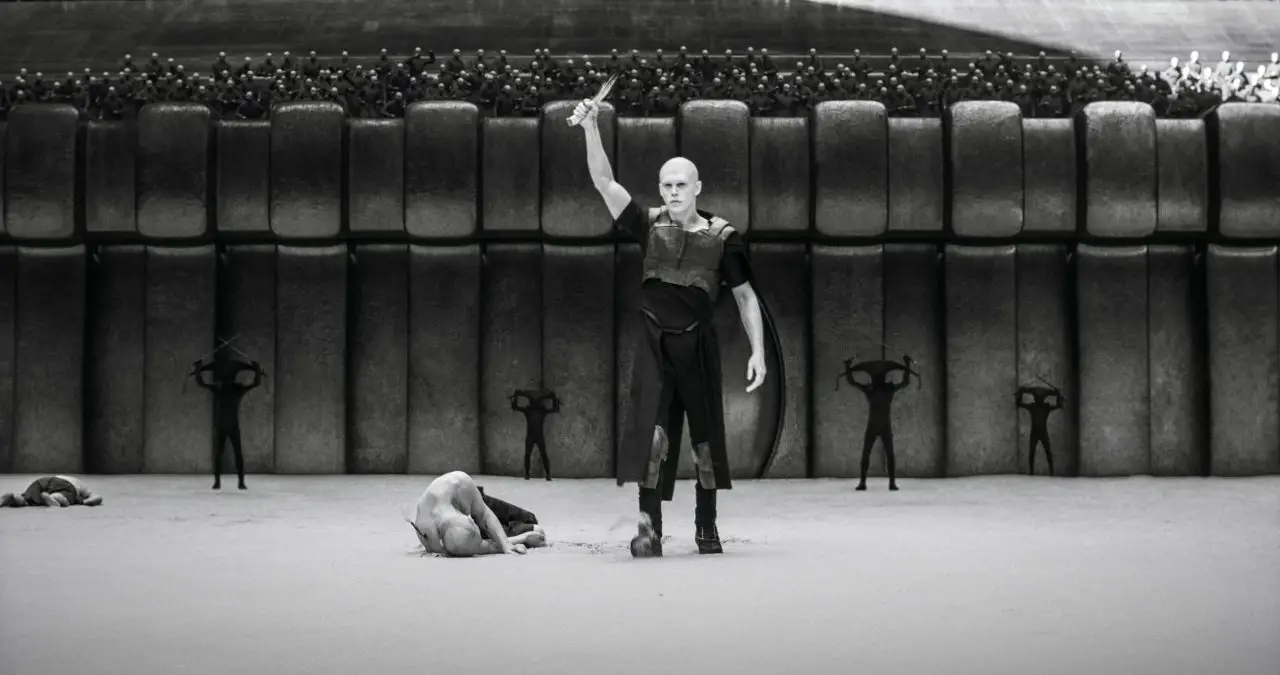
“Hallo, wie gehts. Surprise. I made another masterpiece” – Hans Zimmer
The brilliant composer Hans Zimmer has made me cry real tears more than I’m proud to admit. Go look at Hans Zimmer’s credited work. Hit after hit after hit after hit. Try to go back and imagine a lot of those movies without his influential work playing over them. Dune: Part Two is a visual masterpiece, but without the brilliant score, a lot of the excitement and emotion would be sucked right out of it. A good score is crucial to epic movies like Dune: Part Two, as the dialogue does not carry the water for movies like this. Movies like this rely not only on astonishing visuals, story, and action, but also an original score that can raise the hairs on your back, and make your eyes swell up by the time the credits roll. Hans Zimmer is a master at creating a big score for a big motion picture. I wasn’t crying when the credits rolled, I swear someone was chopping onions in there…
All in all, just go see Dune: Part Two in a movie theater. Do yourself a favor. I enjoyed the first Dune (2021), but even I will say that it felt incomplete, obviously, as it was part one of a two-part story. My only criticism of Dune (2021) was that Dune: Part Two couldn’t come soon enough. Now that Dune: Part Two is here, the story feels complete (almost), and I can’t wait to revisit Dune (2021) and Dune: Part Two as one long and beautiful nearly six-hour movie. But for now, we can all just enjoy Dune: Part Two on the biggest screen possible, while we eagerly await the next installment…
Big picture, epic movies are very clearly back. Dune: Part Two is tracking to be a massive success at the box office. Dune (2021) made just a shade over $430 million at the global box office. Very impressive at that time considering post-COVID as well as being a day-and-date release. Dune: Part Two will most likely double that total. This is great news for movie fans, as the very obvious remains clear, people want to see epic storytelling done right on the biggest screen possible. There will always be a thirst for that. Denis Villeneuve is Paul Atreides and the global film market is Arrakis. Lisan al Gaib!
See you at the movies…
Wicked Horror Rating: 10/10
From Legendary Pictures & Warner Bros. Pictures, Dune: Part Two is playing exclusively in theaters as of March 1st, 2024.
Post Views: 2




